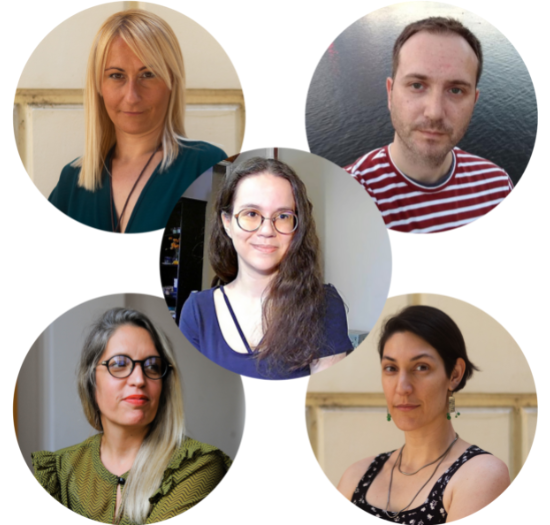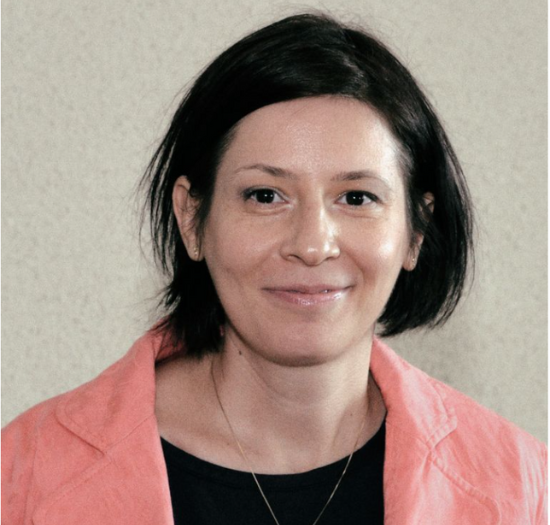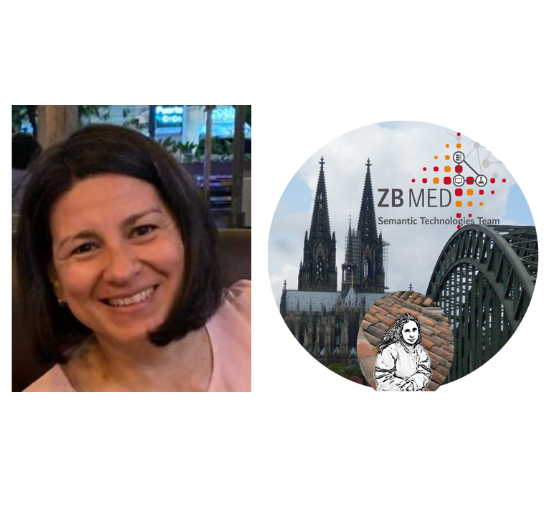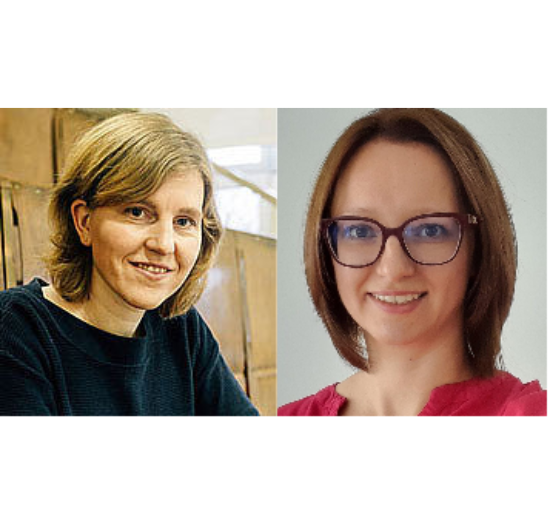RDA Open Call for cross disciplinary science adoption grants
EOSC Future
Research Data Alliance
11 April 2022 - 12:00 am CET
11 July 2022 - 04:00 pm CET
Organisations
€50.000
This call specifically targets smaller community projects to show cross-disciplinary implementation and take up of RDA Recommendation and Outputs within the EOSC context. Emphasis should be on supporting and encouraging examples of adoption of existing RDA recommendations and other outputs which can benefit the community around EOSC and to promote examples and lessons learnt, especially around open and community-led standards, and cross-domain interoperability.
Context
One of the over-arching goals of EOSC Future is to support a common understanding of Open Science, FAIR data and services and about what EOSC has to offer in support of user communities working within and beyond their disciplinary boundaries. The Strategic and Research Innovation Agenda of EOSC reiterates this by stating EOSC can support cross-disciplinary research through the federation and interoperability of research data. To develop this concept further, existing standards for the interoperability of data, one of the core functions of RDA, should be tested and adapted for use across disciplines in the EOSC environment, thus widening EOSC engagement and adoption of cross-disciplinary research best practices.
Background
The European Open Science Cloud (EOSC) is a major European initiative to foster Open Science and harmonize and integrate key European research, computing and data infrastructures for new digital way to do science. This initiative has been supported by several European Commission grants and projects. EOSC Future is one of the largest and most influential projects supporting this initiative. The Research Data Alliance (RDA) is a major international initiative to standardize and respond to research data related challenges globally. RDA has a global membership of over 12 000 experts, and has a 10-year track record on bringing these experts together to provide concrete research data solutions for scientists, repositories and scientific organisations. RDA provides an open forum where research communities, data science experts, and infrastructure builders and managers discuss shared experiences and work on solutions, in particular interoperability solutions.
RDA is running a series of calls in the context of the EOSC Future project, to further enable integration and take up of EOSC services. The purpose of the grants is to support research communities working in RDA in their endeavour to contribute to EOSC, with a particular focus on involving communities not yet involved in EOSC Future or other EOSC activities.
EOSC is a new concept for many disciplinary communities and this call provides an opportunity for a deeper understanding and enabling a two-way communication and collaboration around the EOSC initiative and the EOSC core and associated services.
Meet the grantees

REPOPSI
What:
REPOPSI is an open digital repository for psychological research instruments, such as questionnaires and tests, established and maintained by the Laboratory for Research of Individual Differences at the University of Belgrade Faculty of Philosophy in Serbia.
Who:
- Aleksandra Lazić, M.A., is a PhD Candidate and Research Assistant at the University of Belgrade Faculty of Philosophy, Laboratory for Research of Individual Differences (LIRA).
- Ljiljana Lazarević, PhD, is a Senior Research Associate at the University of Belgrade Faculty of Philosophy, Laboratory for Research of Individual Differences (LIRA) and Institute of Psychology.
- Danka Purić, PhD, is an Assistant Professor and Researcher at the University of Belgrade Faculty of Philosophy, Laboratory for Research of Individual Differences (LIRA).
- Iris Žeželj, PhD, is an Associate Professor and Researcher at the University of Belgrade Faculty of Philosophy, Laboratory for Research of Individual Differences (LIRA).
- Obrad Vučkovac, B.A., is a Library Manager at the University of Belgrade Vinča Institute of Nuclear Sciences.
Scientific Domain:
Social sciences -Psychology and cognitive sciences
Your Promotion and Networking:
The project's activities and outputs are featured on the RDA website.
Country:
Serbia

The EU FAR project
What:
The key objective of the EU FAR project is to stimulate development of granular open data on EU funding. To this end, the work will be conducted for Romania by providing open data aligned with the FAIR movement (Findability, Accessibility, Interoperability, and Reusability).
Who:
- Monica Anca Marin, project coordinator at Research Institute for Quality of Life (RIQL),
- Eugen Glăvan (RIQL)
- Alin Chiș
- Bogdan Corad
Biography:
Scientific Domain:
Sociology; Economics; Geography; Spatial planning
Your Promotion and Networking:
The project's activities and outputs are featured on the RDA website.
Country:
Romania

(maSMP) Ensuring the software accessibility and reusability in the short, medium and long term
What:
Our project corresponds to an extension of the RDA machine-actionable Data Management Plan (maDMP) application profile and its corresponding DMP Common Standard ontology (DCSO) in order to cover the case of ELIXIR Software Management Plans (SMP).
Who:
Olga Giraldo (ontologist and metadata curator) and Leyla Jael Castro (semantic technologies team leader) at ZB MED Information Centre for Life Sciences
Biography:
Scientific Domain:
Semantic web, structured metadata, life sciences
Your Promotion and Networking:
The project's activities and outputs are featured on the RDA website.
Country:
Germany

Fostering the uptake of RDA indicators in Systems Biomedicine as a measure for model quality and FAIRness within the COMBINE community
What:
For computational models to be applied in systems biomedicine they must be FAIR. This is a cross-community project aiming to reuse the RDA FAIR indicators on simulation experiments in COmputational MOdeling in BIology NEtwork (COMBINE) standards. The project will deliver (1) FAIR model indicators with accompanying guidelines and (2) a semi-automatic FAIR evaluation tool to the community.
Who:
- Irina Balaur, Postdoctoral Researcher at Luxembourg Centre For Systems Biomedicine (LCSB), University of Luxembourg, Luxembourg
- Dagmar Waltemath, Professor of Medical Informatics at the University Medicine in Greifswald, Germany
Biography:
Scientific Domain:
Biocomputational models
Your Promotion and Networking:
The project's activities and outputs are featured on the RDA website.
Country:
Luxembourg and Germany

Training delivery of foundational data science skills for Early Career Researchers
What:
The SRDS has developed a methodology for delivery of training of foundational data science skills for Early Career Researchers and data steward instructor training. The curriculum for the former is a formal output of the RDA and the data steward training was developed with the RDA. The delivery has been effective and can be scaled up to provide training that will be key for the EOSC community.
Who:
Hugh Shanahan
Biography:
Scientific Domain:
Bioinformatics
Your Promotion and Networking:
The project's outputs and activities are featured on the RDA website.
FAQs
The RDA Open Calls programme will offer up to 4 grants of maximum €50.000,00 per grant to support the work in this area over the course of the EOSC Future project.
Who can apply?
This programme is designed to support cross-disciplinary adoption cases in the context of EOSC . RDA welcomes applications from people or groups who are committed to RDA, FAIR-ification of data and Open Science. These can be junior/senior researchers, and data scientists and can be based in research groups or institutions, or SMEs across Europe, provided they meet the criteria below. Please check with the RDA Grants team RDA Open Calls: rda-opencalls@rda-foundation.org for clarification of your status, if you are unsure.
Criteria and conditions
- Applicants should demonstrate that they have been or are currently involved in RDA as an active member, participant, chair or contributor or member of a Working Group or Interest Group. Activity in the last 12-18 months is considered a major advantage.
- Be proactive and willing to contribute to RDA recommendations or outputs testing and adoption particularly in European institutions.
- Have a good understanding of EOSC, the FAIR movement.
- Reside and/or work in a EU country or associate countries.
Further conditions
- This call is not open to members of the EOSC Future consortium. Staff working on the EOSC Future project (i.e., directly funded through a beneficiary (its department or unit executing EOSC Future activities), as a LTP or seconded personnel) are not eligible to apply for grants under the RDA Open Calls and will be asked to tick a Declaration of Honour box upon application.
- All successful applicants will have to provide a plan for a sound dissemination of the outputs created, openly licensed. A mid-term and final term report will be submitted, following a contractual agreement, highlighting progress, use cases and lessons learned.
- All results will be made available on the RDA site for 4 years. Successful applicants may be asked to share their details (photo, bio) for dissemination purposes.
- The contracted work will need to be completed within 6 - 9months within receipt of award.
- One grant max per organisation is allowed, however this call could accept complementary applications from different organisations.
Candidates will be asked to submit an application that will be evaluated according to the following criteria:
- Excellence:
- A statement describing the goal and motivation of the proposed work aligned with a commitment to the vision of EOSC, the FAIR movement, national Open Science agendas (implementation), links to European data infrastructures or similar federated infrastructures. (25%)
- A brief summary of previous and current activities demonstrating the applicant’s involvement and contributions to RDA related activities, Working/Interest Groups, development and/or promotion and/or adoption of RDA Recommendations and Outputs in European Institutions. (25%)
- Impact:
- Benefit cross-disciplinary collaboration and the community around EOSC
- Contribution to EOSC i.e. RDA output(s) made useful in EOSC
- Relevance for EOSC Future e.g., Proposed core-service use
- Sustainability and impact potential of the proposal and how this can be carried forward within the context of EOSC and RDA. Applicants should put forward plans expected uptake and maintenance. Methodology of application: The proposal must be thought through, well-written, clear and demonstrate the methodology works. (25%)
- Implementation (quality and efficiency):
- A summary of the proposed work, how it is relevant to RDA. Outline the activities planned and associated timeline, the relationship to and impact on EOSC, and how an accompanying technical update can be created. (25%)
Please note, your proposal should take into account the RDA Guiding principles and demonstrate commitment to them. Proposals should drive the principles of openness and community activities.
The EOSC Future Grants Committee will also consider the following criteria to establish balanced and diverse distribution of the grants: geographical balance, gender balance, preference to candidates in underrepresented fields within RDA.
Evaluators:
The applications will be independently evaluated by experts with insights to the RDA and group recommendations who have no conflict of interest (the applicant is not employed by the evaluator’s organisation nor is/are the recommendation(s) a direct result of their work).
Word limit for applications
The word limit for your application will be via fields in a form each with a specific word limit. You can start with an application and save it in the system to return to it later. You are allowed to upload accompanying documentation, e.g., project plan and methodology.
